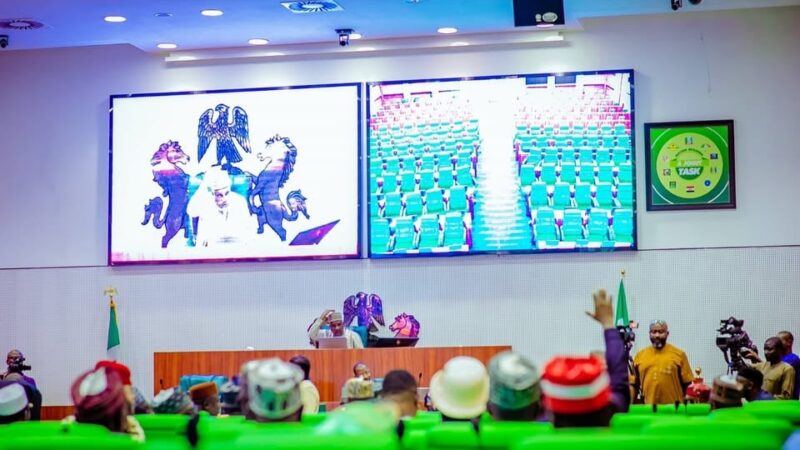NAGAFF lends support to CWC’s allegations against Mediterranean Shipping Company over extortion, delays

The National Association of Government Approved Freight Forwarders (NAGAFF) has expressed its support to the allegations of Delays, Arbitrary Charges, Illegal Detention, Extortion, Unfair Practices, and Tax Evasion raised against Mediterranean Shipping Company Nigeria Limited and Mediterranean Shipping SA Geneva (collectively referred to as ‘MSC’) by the Citizens Whistle-blowers Coalition (CWC).
This is just as it commended the House Committee on Public Petitions for its commitment to uphold justice and protect the interests of Nigerian citizens and businesses.
The body in a letter to the Chairman and members of the House Committee on Public Petitions appreciated the opportunity to contribute to the public hearing on Petition No. 647 of 2025, filed by the CWC against MSC, saying that NAGAFF members consistently faced challenges emanating from the operational practices of MSC.
“As a key stakeholder representing licensed customs agents and freight forwarders, whose operations are intricately linked to the efficiency and fairness of shipping lines, NAGAFF fully supports all allegations made by the CWC against MSC. Our members have consistently faced challenges stemming from MSC’s operational practices, adversely affecting the Nigerian economy, local businesses, and overall trade activities.
“This position paper outlines NAGAFF’s observations, experiences, and arguments in support of the CWC’s petition, emphasising the systemic issues that require urgent legislative intervention.
“The persistent and often inexplicable delays in the delivery of shipments by MSC are a major concern and source of economic loss. Our members routinely encounter the following issues:
“Excessive Vessel Dwell Times: Cargo often remains on vessels at anchorage or within the port for extended periods, far exceeding reasonable turnaround times. This results in demurrage charges even before the cargo can be offloaded, imposing an unfair burden on importers.
“Arbitrary Cargo Rollovers: Shipments are frequently “rolled over” to subsequent vessels without adequate notice or justification, causing significant disruptions to supply chains, production schedules, and market commitments for Nigerian businesses.
“Lack of Transparency: Information regarding vessel schedules, estimated time of arrival (ETA), and reasons for delays are often inconsistent, inaccurate, or withheld, leaving freight forwarders and importers uninformed and unable to plan effectively.
“Impact on Perishable Goods: For importers of perishable goods, these delays lead to spoilage, rendering goods unsellable and resulting in substantial financial losses.
“Increased Costs: Delays inherently lead to increased costs, including warehousing fees, additional transportation charges, and financial penalties for late deliveries to end-users.
“These delays are not mere inconveniences; they directly threaten the viability of Nigerian businesses, hindering economic growth and contributing to inflationary pressures.
“Arbitrary, Inconsistent, and Opaque Charges: A Burden on Trade
“MSC’s charging practices are marked by arbitrariness, inconsistency, and a lack of transparency, aimed at maximising revenue without providing corresponding services. NAGAFF highlights the following issues:
“Unjustifiable Demurrage and Detention Charges: This is perhaps the most egregious of MSC’s practices. Delays attributable to the shipping line itself (e.g., vessel bunching, equipment breakdown, lack of berth space, slow offloading) are often converted into exorbitant demurrage and detention charges for importers. This practice contravenes the principles of fair trade and consumer protection.
“Fluctuating and Unpredictable Charges: Charges for standard services often vary without clear justification or a published, stable tariff. This unpredictability complicates the accurate estimation of import costs for businesses.
“Hidden Fees and Surcharges: New or vaguely defined surcharges frequently appear, adding to the total shipment cost without clear explanations regarding the services they cover.
“Lack of Itemised Billing: Bills are often insufficiently detailed, making it difficult for freight forwarders and importers to validate the legitimacy of each charge.
“Delayed or Refused Container Deposits: NAGAFF members consistently report issues with MSC failing to refund container deposits promptly, effectively holding legitimate funds hostage and impacting the liquidity of businesses. This essentially acts as an interest-free loan for the shipping line”, the letter read.
The letter, signed by the Secretary General of NAGAFF, Fwdr. Emeka Nwosu, emphasised that these arbitrary charges inflate the cost of goods in the Nigerian market, ultimately being passed on to the final consumer.
It therefore pointed out that the maritime industry must address these issues to foster fair and competitive trade practices in Nigeria.







